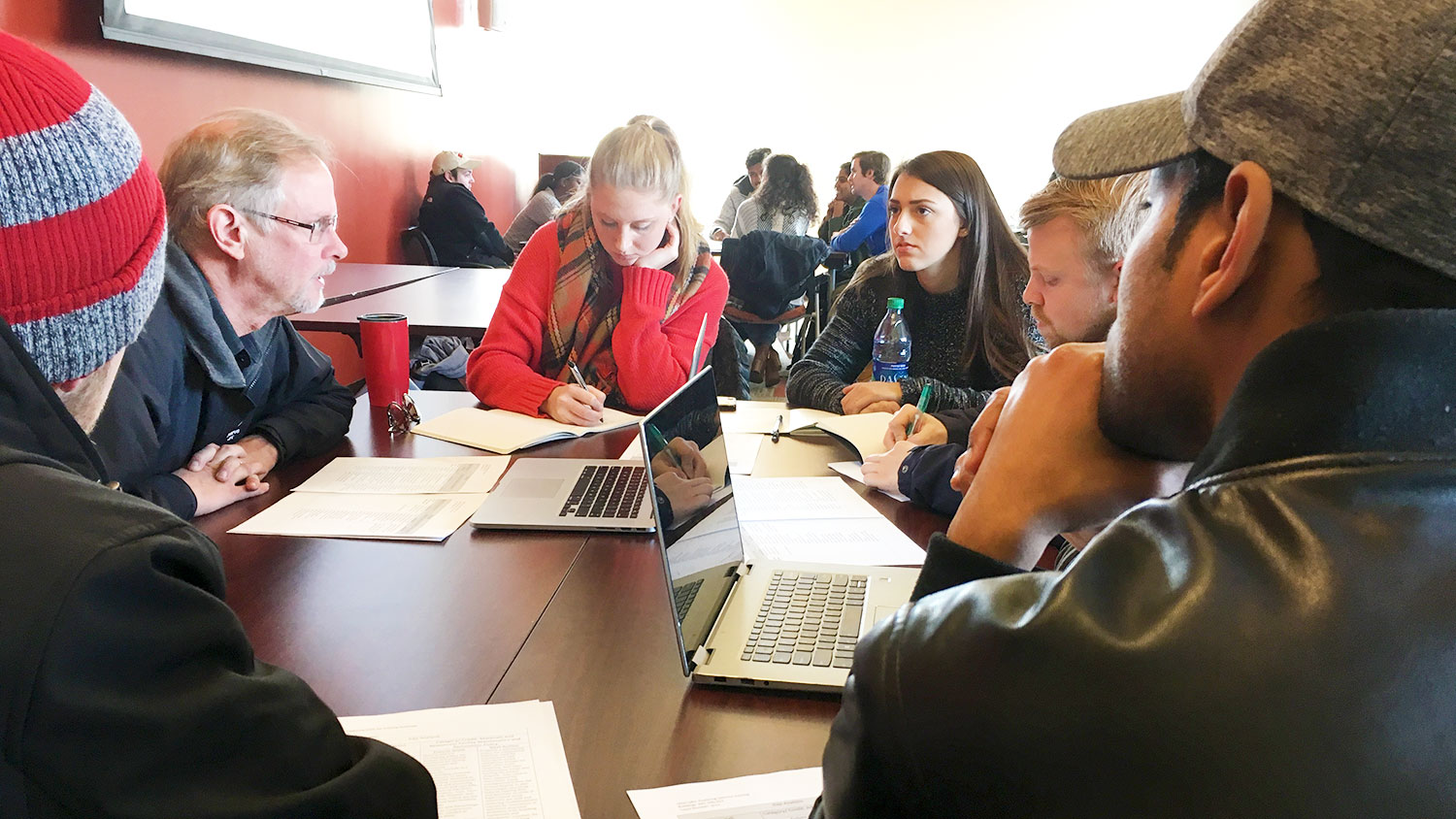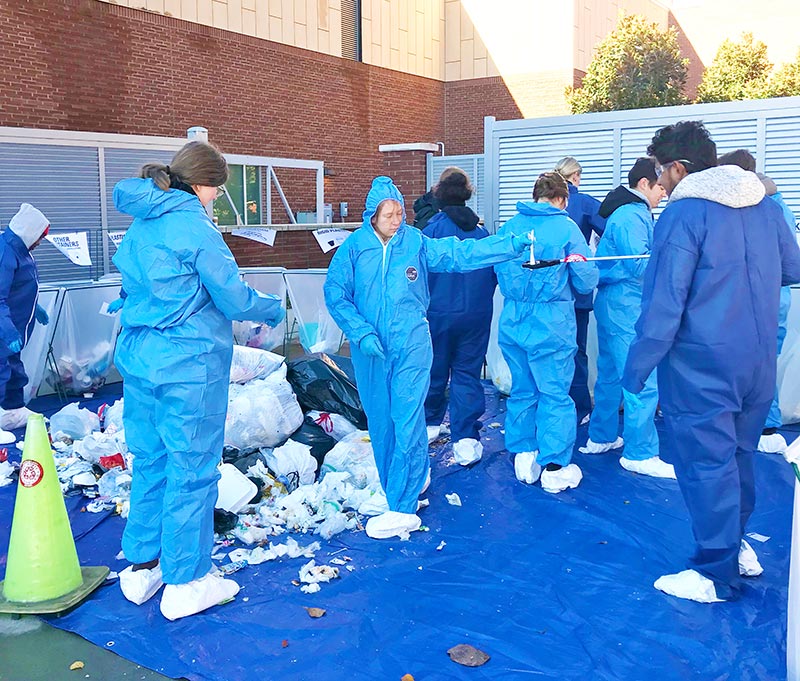Students Size Up Sustainability At Campus Apartments

Wolf Ridge Apartments were built with sustainability in mind and have Leadership in Energy and Environmental Design (LEED) certification to prove it.
But that was in 2015, and three years later a group of NC State students wanted to find out whether the university could do more to improve sustainability of the buildings’ operations and maintenance.
In fall 2018, about 30 students participated in LEED Lab, a unique architecture course that brings together future engineers, architects and environmental scientists for a hands-on experience as sustainability consultants.
“This is great for the university to have students contributing something that [the university] can use to make a greener building, campus and planet,” said course instructor George Elvin, an associate professor in the College of Design’s School of Architecture.
Using the LEED Operations and Maintenance rating system as a guide for sustainable best practices, the students developed recommendations ranging from requiring eco-friendly purchasing and installing metered sink faucets to boosting education about composting and planting hardier plants on the building’s vegetative roof.
In many areas, students found that the buildings already qualified for credits on existing sustainability features, such as mercury-free lighting, rainwater management and mitigation of heat island effect.
On the final day of class, students presented their work, discussed their findings with facilities management staff and adjusted their recommendations based on feasibility.
“It was interesting to learn more about sustainable and green buildings,” said Sri Dharshini Manivannan, who is pursuing a master’s degree in construction engineering and management. “I’ve never had an entire course on this.”

Manivannan decided to take the course after completing a summer internship working on a LEED-certified building.
“More and more buildings are pursuing LEED, but there was nothing in my curriculum about sustainable buildings,” she said. “A lot of [previous] students gave me good feedback about the course, so I decided to take it.”
One of the course’s hallmarks is its interdisciplinary nature. Students come from both the undergraduate and graduate levels with a variety of majors.
“Even in my own project group, there were people of different nationalities and majors,” said Manivannan. “When you work together, you get a whole lot of new perspective.”
The is the fifth time the LEED Lab course ‒ hosted by the College of Design’s School of Architecture in partnership with the University Sustainability Office ‒ has been offered on campus. Since the course began in 2013, more than 100 students have evaluated sustainability in Nelson Hall, Bragaw Hall, Talley Student Union, McKimmon Center and now Wolf Ridge Apartments.